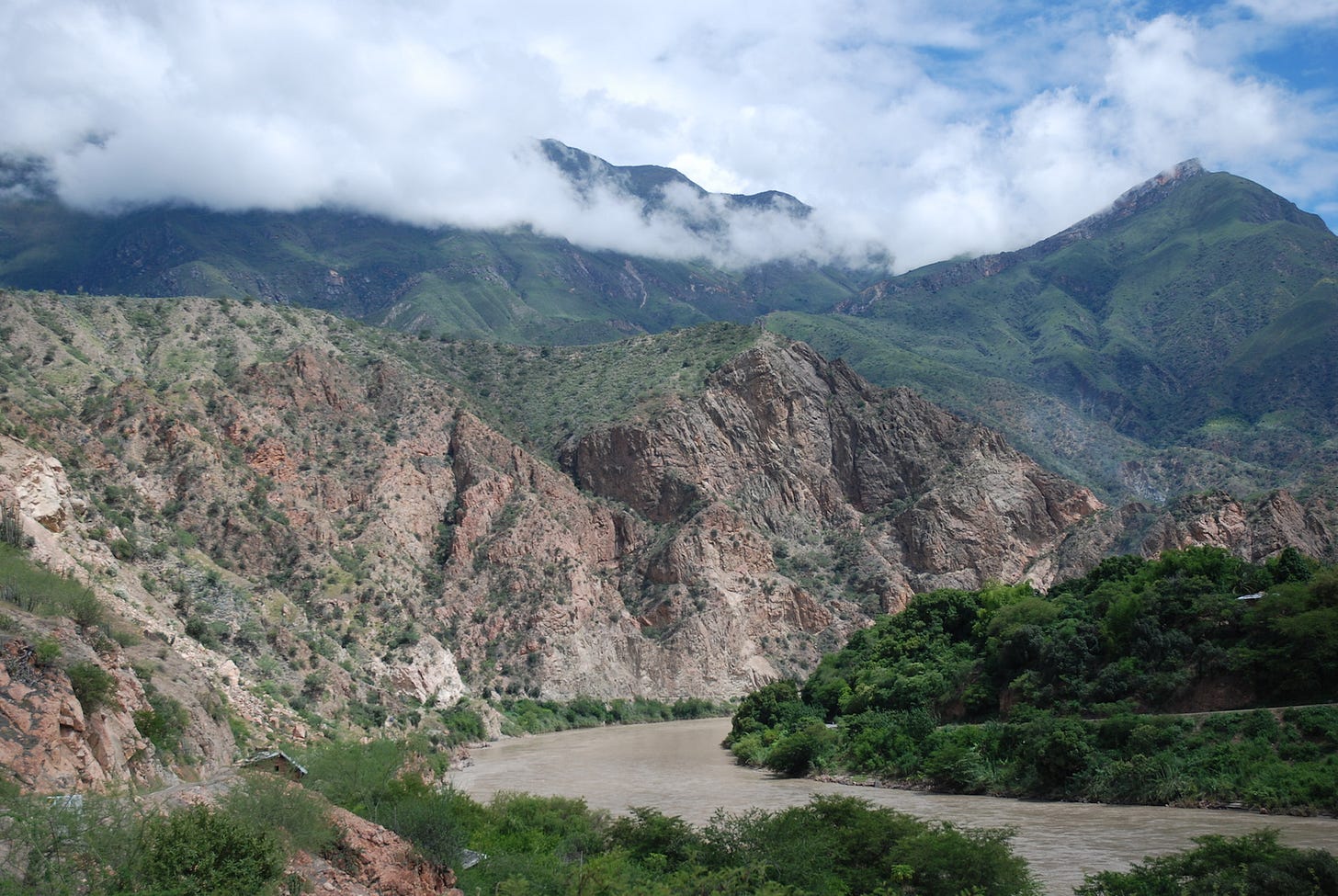Will one of the River Amazon’s main sources be granted Rights of Nature?
Ruling from judge expected imminently after pioneering lawsuit from indigenous federation
I don’t think I’ve ever felt as genuinely awed by any natural phenomenon as I did when first coming face-to-face with the mighty River Marañon in Peru, believed for many years to be the main source of the River Amazon. None of South America’s other wonders - Andean peaks like Ausangate and Cotopaxi, the Brazilian Pantanal, Bolivia’s salt flats, the main trunk of the River Amazon itself - or indeed anywhere else in the world seemed to compare.
Now, in a move that some describe as pioneering, but others think is crazy and/or impossible, the Marañon, which runs for some 1,700kms, may be granted rights. If that happens, it will join a small-but-slowly-swelling group of other rivers around the world such as the Whanganui in New Zealand and the Atrato in north-west Colombia.
In addition, it would act as further proof that the global Rights of Nature movement, albeit still comparatively little-known, is enjoying something of a boom. How else to stop the ongoing destruction of Planet Earth?
Calls for the Marañon’s rights are being led by an indigenous Kukama federation from the Peruvian Amazon, Huaynakana Kamatahuara Kana (HKK), in a lawsuit filed against state oil company Petroperu, the Environment Ministry and five other state entities. 11 potential rights have been identified, including the right to exist, to flow, to function as a sustainable ecosystem, and to be free from any kind of contamination.
One of the main reasons HKK has adopted this strategy is because of the decades of oil spills that continue to impact the Marañon and the many Kukama communities where people’s lives and livelihoods depend on the river, and the abject failure of Petroperu in particular to maintain and/or protect its infrastructure as well as clean up when spills occur. How else to save the Marañon from such wanton devastation? If the river itself has rights, rather than just the Kukamas, whose rights are routinely violated, then perhaps things can change for the better.
For Mariluz Canaquiri Murayari, HKK’s president, in her 50s and a mother-of-four, the Marañon is not just “fundamental” to the Kukamas’ lives and existence, but “sacred” too.
“We have no other source of drinking water,” she tells me. “But there have been over 50 years of oil spills and they are killing us slowly.”
The Kukamas' lawsuit argues that the Marañon should be granted rights because of a ruling and one other pronouncement by the Inter-American Court on Human Rights in Costa Rica, both of which are legally binding on Peru under the Inter-American human rights system. HKK is supported by lawyers from the Lima-based Instituto de Defensa Legal, as well as international NGOs such as International Rivers, the Earth Law Centre and the Global Alliance for the Rights of Nature (GARN).
In an amicus curiae submitted to the judge overseeing the case, the latter three organisations alleged that “oil spills into the Marañon’s catchment area have been constant” over decades and that “Peru is internationally obliged to acknowledge the River Marañon's intrinsic value.” In addition, they highlighted the social and environmental significance of the region - home to an estimated two million people including the Kukamas and other indigenous people, endemic species, a unique forest conservation area, unusual palm swamps, a wide range of flora and fauna, and an “enormous number of protected areas.”
“The Rights of Nature perspective has several important advantages - such as recognising that natural entities have the inherent right to thrive. . . - and its advance will correct the gaps in our current legal structures that permit short-sighted actors to abuse the world’s natural systems for a quick return,” that amicus curiae states. “It promotes the idea that human beings, just like everyone else who lives on Earth, should respect it.”
According to the Chaikuni Institute, another Peruvian NGO working with HKK, oil spills have meant that sometimes Kukama communities are “left without being able to use the water in the river or lakes for months”, and that in addition to the environmental impacts on fishing and the soil there are cultural and spiritual impacts too.
“We believe the importance of the lawsuit, irrespective of the final result, is in giving greater visibility to the Kukama people’s struggle and the problem of oil pollution in the Marañon, while at the same time raising the issue of the need to re-think our idea of nature as being something apart from us,” says Chaikuni’s Daniel López Pérez.
The justice system moves slowly in Peru, when it moves at all, and this case is no exception. HKK filed its lawsuit back in September 2021, but it wasn’t until more than two years later, November 2023, that a hearing finally took place - in a courthouse in a small town, Nauta, on the lower Marañon’s left bank, just before it joins the River Ucayali to form the River Amazon. A ruling should have been emitted within two weeks, but it is now expected next month.
“I’m feeling positive about it,” says Canaquiri. “I think the judge understands where we’re coming from. Our concern is, if we don’t do this, then who else is going to do it? This is not just for ourselves, the Kukama, but for the rest of the country and the world.”



